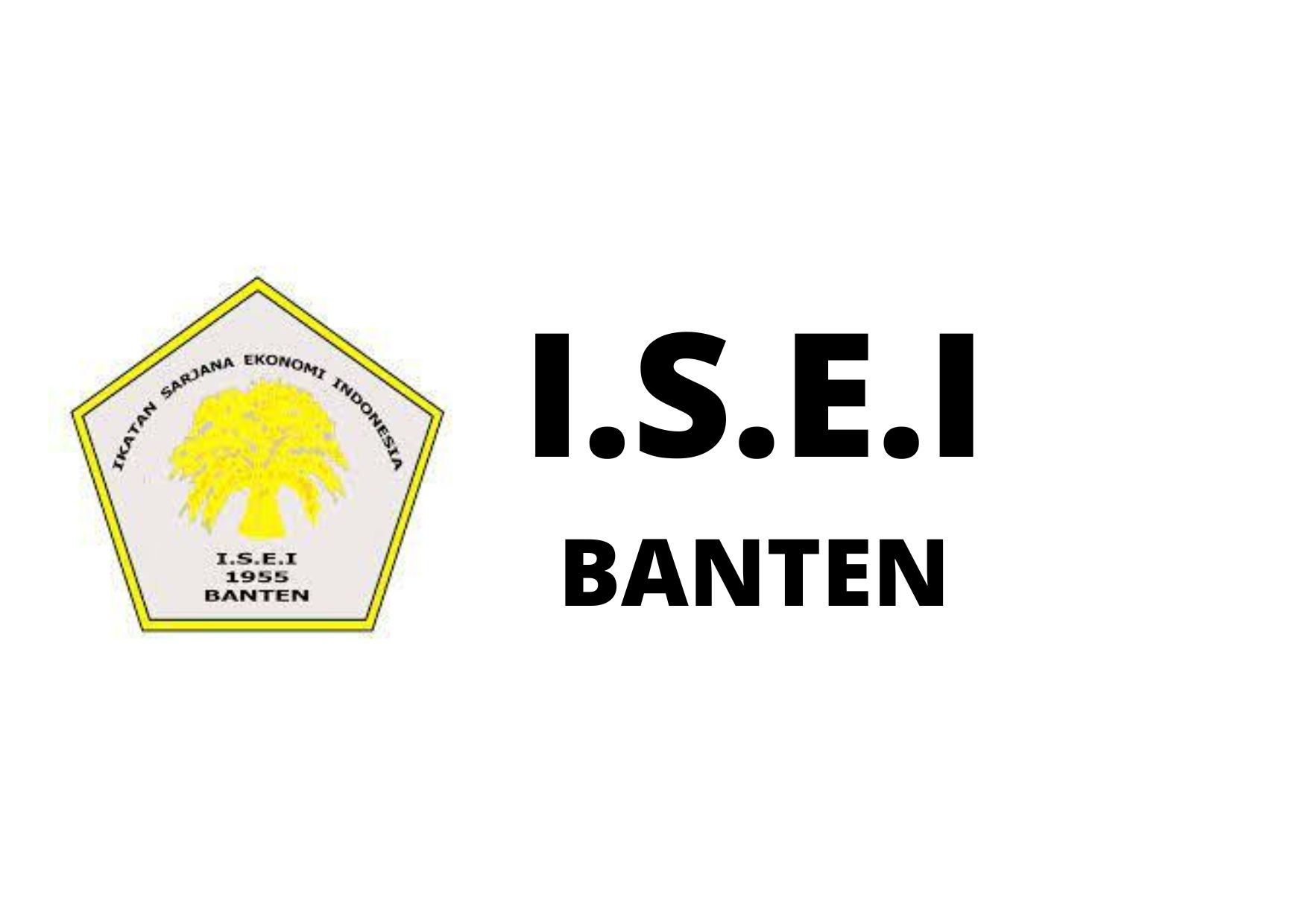Bias Psikologi pada Perilaku Keuangan Generasi Milenial dalam Berinvestasi di Pasar Modal
Abstract
As the majority of investors in Indonesia, millennials’ decision making is often influenced by psychological biases that make their decisions irrational. For this reason, this study aimed to summarize various psychological biases on the financial behavior of the millennial generation in investing in the capital market. This study used a literature study method, whereas data were obtained through a search on Google Scholar and selected using a flow chart based on inclusion and exclusion criteria. There were five articles that were used as the main data in this study. The results showed that there were various types of psychological biases that can influence investment decision making, namely herding behavior, overconfidence, disposition effect, loss aversion, conservative bias, and regret aversion. All of these psychological biases can lead investors to make adverse decisions in the future, either because of the decisions of others, overconfidence in their abilities and information, reluctant to accept losses, or simply because they were worried that they would regret it later. These biases arised because investors were influenced by their psychological and emotional factors in making decisions, rather than basing their decision making on rational quantitative analysis. Since it could lead investors to make adverse decisions, psychological biases needed to be intervened by having good financial literacy.
Keywords
Full Text:
PDF (Indonesian)References
Abdullaevich, M. M. (2020). The basic concepts of investment and its importance. JournalNX- A Multidisciplinary Peer Reviewed Journal, 6(6), 193–196.
Addinpujoartanto, N. A., & Darmawan, S. (2020). Pengaruh Overconfidence, Regret Aversion, Loss Aversion, Dan Herding Bias Terhadap Keputusan Investasi Di Indonesia. Jurnal Riset Ekonomi Dan Bisnis, 13(3), 175. https://doi.org/10.26623/jreb.v13i3.2863
Adel, B., & Mariem, T. (2013). The Impact of Overconfidence on Investors’ Decisions. Business and Economic Research, 3(2), 53. https://doi.org/10.5296/ber.v3i2.4200
Ahmad, H., Mappatompo, A., & Muslim. (2018). Capital Ownership Structure And Decision On Financial Market Reaction And Corporate Value. International Journal of Innovative Science and Research Technology, 3(9), 67.
Analycia. (2021). Perilaku Keuangan Pada Generasi Milenial Studi Kasus Pada Beberapa Perguruan Tinggi Swasta Di Bandung. Journal of Accounting and Business Studies, 6(1), 81–105.
Ariani, S., Rahmah, P. A. A. A., Putri, Y. R., Rohmah, M., Budiningrum, A., & Lutfi, L. (2016). Pengaruh literasi keuangan, locus of control, dan etnis terhadap pengambilan keputusan investasi. Journal of Business & Banking, 5(2), 257. https://doi.org/10.14414/jbb.v5i2.706
Arisanti, I., & Asri, M. (2018). Herding Behavior Post Initial Public Offering In Indonesia Stock Exchange. Journal of Accounting and Investment, 19(2). https://doi.org/10.18196/jai.190298
Asdar, M., Ridjal, S., & Tangngisalu, J. (2022). The Effect of Financial Literacy, Financial Behavior and Income On Investment Decisions. YUME : Journal of Management, 5(1), 593–604. https://doi.org/10.2568/yum.v5i1.1620
Bakar, S., & Yi, A. N. C. (2016). The Impact of Psychological Factors on Investors’ Decision Making in Malaysian Stock Market: A Case of Klang Valley and Pahang. Procedia Economics and Finance, 35(October 2015), 319–328. https://doi.org/10.1016/s2212-5671(16)00040-x
Chair, U., & Bruhami, abdul hanif. (2021). Analisis Harga Jual dan Beban Pokok Penjualan Serta Dampaknya Terhadap Omzet Penjualan. Journal of Management, 4(2), 271–276. https://doi.org/10.37531/yume.vxix.324
Christiani, L. C., & Ikasari, P. N. (2020). Generasi Z dan Pemeliharaan Relasi Antar Generasi dalam Perspektif Budaya Jawa. Jurnal Komunikasi Dan Kajian Media, 4(2), 84–105.
Darwati, J. T., Zulkifli, Z., & Rachbini, W. (2022). Pengaruh Literasi Keuangan, Self Control Dan Risk Tolerance Terhadap Keputusan Investasi Melalui Perilaku Keuangan (Studi Kasus Karyawan Bank BUMN di Kota Depok). Jurnal Ilmiah PERKUSI, 2(1), 8. https://doi.org/10.32493/j.perkusi.v2i1.17616
Eki Rahman, R., & Ermawati. (2020). Analysis of herding behavior in the stock market: A case study of the asean-5 and the US. Buletin Ekonomi Moneter Dan Perbankan, 23(3), 297–318. https://doi.org/10.21098/BEMP.V23I3.1362
Filip, A., Pochea, M., & Pece, A. (2015). The Herding Behaviour of Investors in the CEE Stocks Markets. Procedia Economics and Finance, 32(December 2015), 307–315. https://doi.org/10.1016/s2212-5671(15)01397-0
Gazel, S. (2015). The Regret Aversion as an Investor Bias. International Journal of Business and Management Studies, 04(02), 419–424.
Gill, S., Kashif Khurshid, M., Mahmood, S., & Ali, A. (2018). Factors Effecting Investment Decision Making Behavior: The Mediating Role of Information Searches. European Online Journal of Natural and Social Sciences, 7(4), 758–767. http://www.european-science.com758
Haryanto, H., Batam, U. I., Batam, U. I., & Author, C. (2022). Dampak Behavioral Finance Terhadap Keputusan Investasi dengan Persepsi Risiko sebagai Variabel Moderasi. 21(2), 159–173.
Jain, N., & Kesari, B. (2019). Effect of Conservatism Bias and Self-Attribution Bias on Financial Risk Tolerance of Investors. Gap Gyan - An InternationalPeer-Reviewed Open Access Journal of Social Sciences, II(1), 83–87. https://www.researchgate.net/publication/334559545_GAP_GYAN_-_EFFECT_OF_CONSERVATISM_BIAS_AND_SELF-ATTRIBUTION_BIAS_ON_FINANCIAL_RISK_TOLERANCE_OF_INVESTORS
Lase, D., & Daeli, D. O. (2020). Pembelajaran Antargenerasi Untuk Masyarakat Berkelanjutan: Sebuah Kajian Literatur Dan Implikasi. Jurnal Ilmiah Ilmu Sosial, 6(2), 89. https://doi.org/10.23887/jiis.v6i2.28138
Li, Y., & Yang, L. (2013). Prospect theory, the disposition effect, and asset prices. Journal of Financial Economics, 107(3), 715–739. https://doi.org/10.1016/j.jfineco.2012.11.002
Linggadjaya, R. I. T., Sitio, B., & Situmorang, P. (2022). Digital Transformation of PT Bank Jago TBK from Conventional Bank to Digital Bank. International Journal of Digital Entrepreneurship and Business (IDEB), 3(1), 9–22.
Mahadevi, S. A., & Haryono, N. A. (2021). Pengaruh Status Quo, Herding Behaviour, Representativeness Bias, Mental Accounting, serta Regret Aversion Bias terhadap Keputusan Investasi Investor Milenial di Kota Surabaya. Jurnal Ilmu Manajemen, 9(2), 779. https://doi.org/10.26740/jim.v9n2.p779-793
Moradi, M., Mostafaei, Z., & Meshki, M. (2013). A study on investors’ personality characteristics and behavioral biases: Conservatism bias and availability bias in the Tehran Stock Exchange. Management Science Letters, 3(4), 1191–1196. https://doi.org/10.5267/j.msl.2013.03.003
Muslim Muslim, H. A. (2022). Several Factors Affecting Firm Value Manufacturing in Indonesia. Jurnal Akuntansi, 26(1), 127. https://doi.org/10.24912/ja.v26i1.821
Mutawally, F. W., & Haryono, N. A. (2019). Pengaruh Financial Literacy, Risk Perception, Behavioral Finance Dan Pengalaman Investasi Terhadap Keputusan Investasi Mahasiswa Surabaya. Jurnal Ilmu Manajemen (JIM), 7(4), 942–953.
Nuzula Agustin, I., & Lysion, F. (2021). Isnaini Nuzula Agustin 1 Fiona Lysion 2. 1(1). https://journal.uib.ac.id/index.php/combines
Ouarda, M., El Bouri, A., & Bernard, O. (2013). Herding behavior under markets condition: Empirical evidence on the European financial markets. International Journal of Economics and Financial Issues, 3(1), 214–228.
Pujiyanto, N. (2013). Regret Aversion Bias Dan Risk Tolerance Dalam Keputusan Investasi. Skripsi S1 Fakultas Ekonomika Dan Bisnis Universitas Kristen Satya Wacana Salatiga.
Purnamasari, V., Merlinda, S., Narmaditya, B. S., & Irwansyah, M. R. (2021). The Millennial’s Investment Decisions: Implications of Financial Literacy, Motivation, and Digitalization. Ekuitas: Jurnal Pendidikan Ekonomi, 9(2), 314. https://doi.org/10.23887/ekuitas.v9i2.39328
Rahman, K., & Yulian, T. N. (2022). Volume . 18 Issue 1 ( 2022 ) Pages 139-144 INOVASI : Jurnal Ekonomi , Keuangan dan Manajemen ISSN : 0216-7786 ( Print ) 2528-1097 ( Online ) Pengaruh Perilaku Keuangan dan Pendapatan terhadap Keputusan Investasi Saat Pandemi Covid 19 dengan Literasi Keuan. 18(1), 139–144. https://doi.org/10.29264/jinv.v18i1.10418
Raju, V., & Poh Phung, S. (2021). Resilient Motive for Reviewing Literatures in Business Research: Exploring Process of Research Design. Annals of the Romanian Society for Cell Biology, 25(4), 6307–6328. http://annalsofrscb.ro
Ramdhani, A., Ramdhani, M. A., & Amin, A. S. (2014). Writing a Literature Review Research Paper: A step-by-step approach. International Journal of Basic and Applied Science, 03(01), 47–56.
Rau, H. A. (2014). The disposition effect and loss aversion: Do gender differences matter? Economics Letters, 123(1), 33–36. https://doi.org/10.1016/j.econlet.2014.01.020
Riaz, T., & Iqbal, H. (2015). Impact of Overconfidence, Illusion of control, Self Control and Optimism Bias on Investors Decision Making; Evidence from Developing Markets. Research Journal of Finance and Accounting, 6(11), 2222–2847. www.iiste.org
Senewe, V., Lapian, S. L. H. V. J., & Tumbuan, W. J. F. A. (2018). Analysis of Behavioral Finance in Stock Investment of Sam Ratulangi University Student Analisis Perilaku Keuangan Dalam Investasi Saham Pada Mahasiswa Universitas Sam Ratulangi. Analysis…… 1528 Jurnal EMBA, 6(3), 1528–1537.
Singh, T., & Sikarwar, G. S. (2015). The Influence of Investor Psychology on Regret Aversion. Global Journal of Management and Business Research: C Finance, 15(2), 1–16. https://journalofbusiness.org/index.php/GJMBR/article/view/1658/1561
Snyder, H. (2019). Literature review as a research methodology: An overview and guidelines. Journal of Business Research, 104(March), 333–339. https://doi.org/10.1016/j.jbusres.2019.07.039
Syahnur, K. N. F., & Yahya, S. D. (2022). Studi Faktor Determinan Keputusan Investasi Generasi Milenial Pada Aset Kripto. AkMen JURNAL ILMIAH, 19(2), 144–153. https://doi.org/10.37476/akmen.v19i2.2927
Syarkani, Y., & Alghifari, E. S. (2022). The influence of cognitive biases on investor decision-making: the moderating role of demographic factors. Jurnal Siasat Bisnis, 26(2), 183–196. https://doi.org/10.20885/jsb.vol26.iss2.art5
Upadana, I. W. Y. A., & Herawati, N. T. (2020). Pengaruh Literasi Keuangan dan Perilaku Keuangan terhadap Keputusan Investasi Mahasiswa. Jurnal Ilmiah Akuntansi Dan Humanika, 10(2), 126. https://doi.org/10.23887/jiah.v10i2.25574
Warganegara, S. F. A., & Warganegara, D. L. (2022). Herding behavior in the indonesia stock exchange around the covid-19 pandemic. Fair Value: Jurnal Ilmiah Akuntansi Dan Keuangan, 4(11), 4912–4921. https://doi.org/10.32670/fairvalue.v4i11.1822
Wendy, W. (2021). Efek Interaksi Literasi Keuangan Dalam Keputusan Investasi: Pengujian Bias-Bias Psikologi. Jurnal Ekonomi Bisnis Dan Kewirausahaan, 10(1), 36. https://doi.org/10.26418/jebik.v10i1.43403
Widyastuti, A. (2020). Faktor-Faktor yang Mempengaruhi Keputusan Investasi Pada Generasi Milenial ( Studi Pada Generasi Milenial Usia 18-34 Tahun di DKI Jakarta ).
DOI: http://dx.doi.org/10.35448/jmb.v15i1.17404
Refbacks
- There are currently no refbacks.
Copyright (c) 2022 Sains: Jurnal Manajemen dan Bisnis
Redaksi SAINS: Jurnal Manajemen dan Bisnis,
Fakultas Ekonomi dan Bisnis, Universitas Sultan Ageng TirtayasaJl. Raya Palka KM 3 Sindangsari, Pabuaran, Kab. Serang, Provinsi Banten
Telp/Fax (+62254) 3204321
E-mail: [email protected]
Sains: Jurnal Manajemen dan Bisnis is licensed under a Creative Commons Attribution-ShareAlike 4.0 International License.







